Parkrun celebrates 20 years of making people healthier and happier
The idea for parkrun started on October 2, 2004 when 13 runners joined a free timed 5k Bushy Park Time Trial in south-west London.

The 20th anniversary of parkrun will be celebrated this week as new research shows the event is meeting its goal to make people healthier and happier.
Parkrun started on Saturday October 2, 2004 when 13 runners joined a free timed 5k run at Bushy Park in south-west London, which was organised by runner Paul Sinton-Hewitt while he was recovering from injury.
What started life as the Bushy Park Time Trial has developed into parkrun which sees people, walk, run and volunteer at more than 2,500 locations every week while a 2k junior parkrun takes place on a Sunday morning across the UK, Ireland, and Australia for children aged four to 14.
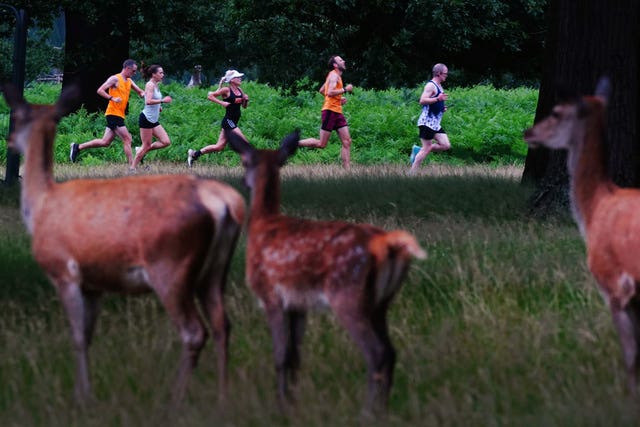
Almost 2,000 GP practices around the world are twinned with their local event and social prescribing has seen parkrun suggested to people with anxiety, depression, asthma, arthritis, diabetes, heart conditions and cancer.
New research led by Sheffield Hallam University and the University of Sheffield, based on a six-month study of 548 newly registered parkrunners, showed life satisfaction increased after doing as few as two parkruns.
More than 45,000 people who have registered for parkrun in the UK this year identified themselves as completely inactive before signing up.
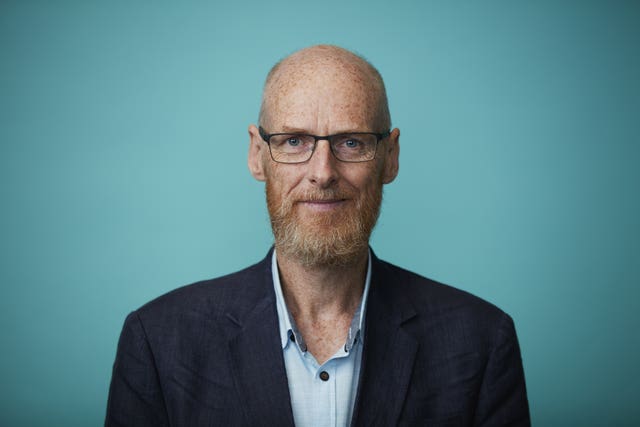
He said using the UK Office of National Statistics approach to measuring wellbeing, on a scale of zero to 10 (where 10 is the best), the new research showed life satisfaction increased by 0.26, from 7.49 to 7.75, in those participating in parkrun, taking them from below the UK average to above it.
He said people often meet up with friends before and after taking part and also form more casual relationships with people they see regularly with parkrun giving a common interest.
“You see your friends, then you run, then you have a cake and chat. For a lot of people, that’s what makes it,” he said.
Professor Haake, who has been participating in parkrun since 2010 and looking into its impact since around 2015, told the PA news agency: “People say parkrun saved my life.”
“It’s quite dramatic,” he said, recalling someone with depression saying they experienced “bad thoughts” on their way to parkrun but those thoughts were gone after taking part.
“Then there are people who say they met their life partner there,” he added.
“There are older people who say their partner died and now they meet their grandchildren there. It’s the highlight of their week.”

He regularly hears stories about how people’s lives have changed as a result of joining “a very supportive low pressure community where the time that you take doesn’t matter”.
“It’s about being social and outdoors,” he said.
He believes it can play a role in preventing health issues which could relieve pressure on the NHS which may be required to make fewer interventions as a result.
“We are thinking about supporting people’s health in a sustainable way. The current system is clearly broken,” he said.
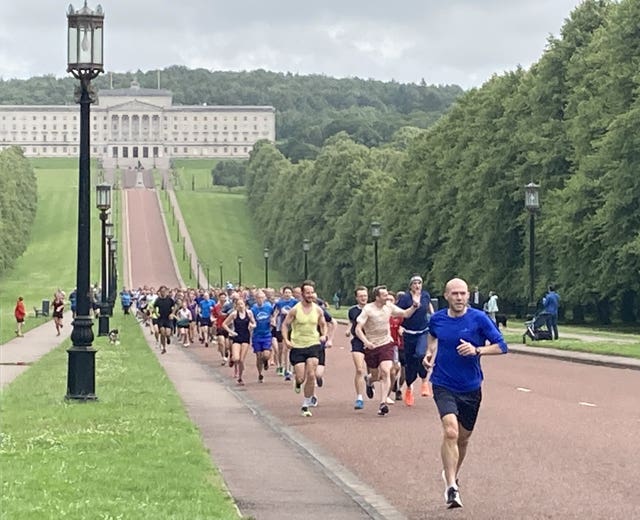
“By recommending that patients take part in a free and inclusive exercise event like parkrun, if it’s safe for them to do so, we can help them improve their fitness and overall health and reduce the risk of serious health conditions.
“The link between physical activity and health – both physical and mental – is well established, and those who do regular physical movement have a lower risk of developing a range of potentially serious conditions including obesity, diabetes, high-blood pressure, cardiovascular disease; even dementia or neurodegenerative diseases.
“Volunteering at parkrun not only fosters a sense of community, but also promotes mental wellbeing, reduces stress, and encourages physical activity, contributing to overall better health.
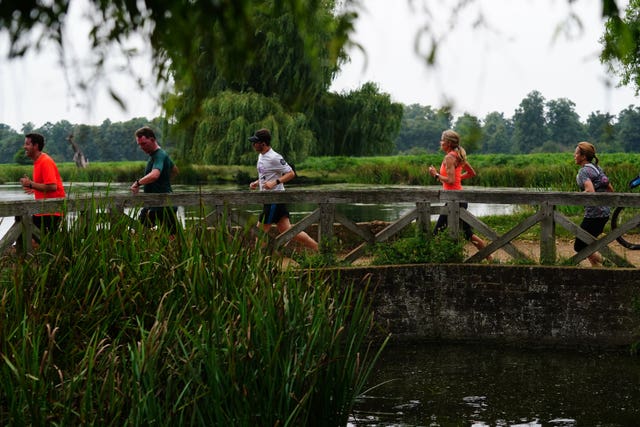
“I formed friendships with likeminded people, which was highly motivating and over the subsequent 10 years have transformed my health and life.”
Parkruns now also take place in prisons and young offender institutions which Mr Jefferys said reaches “some of the most disadvantaged people in the community”.
He said some prisoners join local parkruns when they are released, creating a bridge from their life inside to a new life outside prison.
“Our hope is we can reduce the rates of reoffending,” he said.
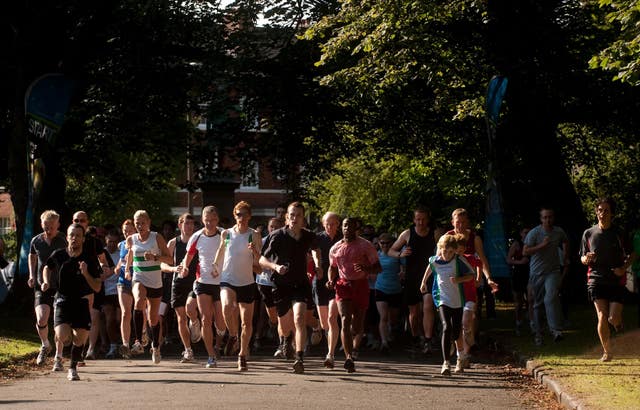
Since HMP Haverigg in Cumbria held the first parkrun event in a prison in 2017, more than 10,000 prisoners have taken part across the country.
Lord James Timpson, minister for prisons, probation and reducing reoffending, said: “Sport can play a powerful role in rehabilitating offenders and I’ve seen first-hand the value of schemes like parkrun, with more than 10,000 prisoners having benefited from it so far.
“It is a fantastic example of how community schemes such as these can benefit both those inside and outside of the prison gates.”
Prof Haake said using the UK Treasury’s approach to the valuation of wellbeing, the life satisfaction increase for parkrun was estimated as at least £667 million a year to the UK economy.
Further analysis showed that every £1 spent on parkrun returned at least £16.70 in benefits to the UK, including £10 in healthcare benefits.
Prof Haake said: “In the current environment where funding is scarce, our research shows that initiatives like parkrun can be cost-effective.”
Parkrun is now a UK based global charity with almost 70 employees and an annual turnover around £10 million.
Mr Jefferys said the plan for the future is “more of the same”, adding: “There is still huge demand for more events.”
The cost works out at roughly £83 per event per week, he said, kept down due to the key role played by volunteers, but added: “The simple truth is that as we grow we do need more money.”
Parkrun receives public funding from the UK, Ireland and Australian governments and commercial partnerships also bring income.
To mark the 20th anniversary, Brooks has launched limited edition Ghost 16 parkrun trainers in the event’s trademark apricot colour, with 15% of profits going directly to the charity.
Mr Jefferys said: “It’s important people know it’s free and always will be free. There’s no requirement for people to pay anything to take part.”
Parkrun’s 20th anniversary will be celebrated across the UK and around the world on Saturday, with communities encouraged to come together at their local parkruns.





